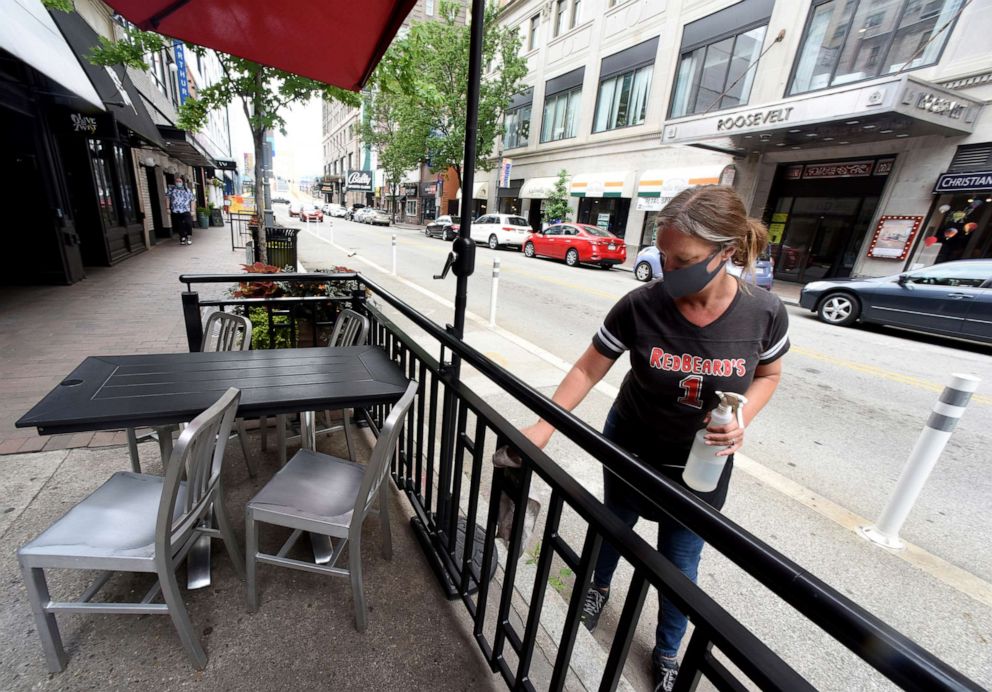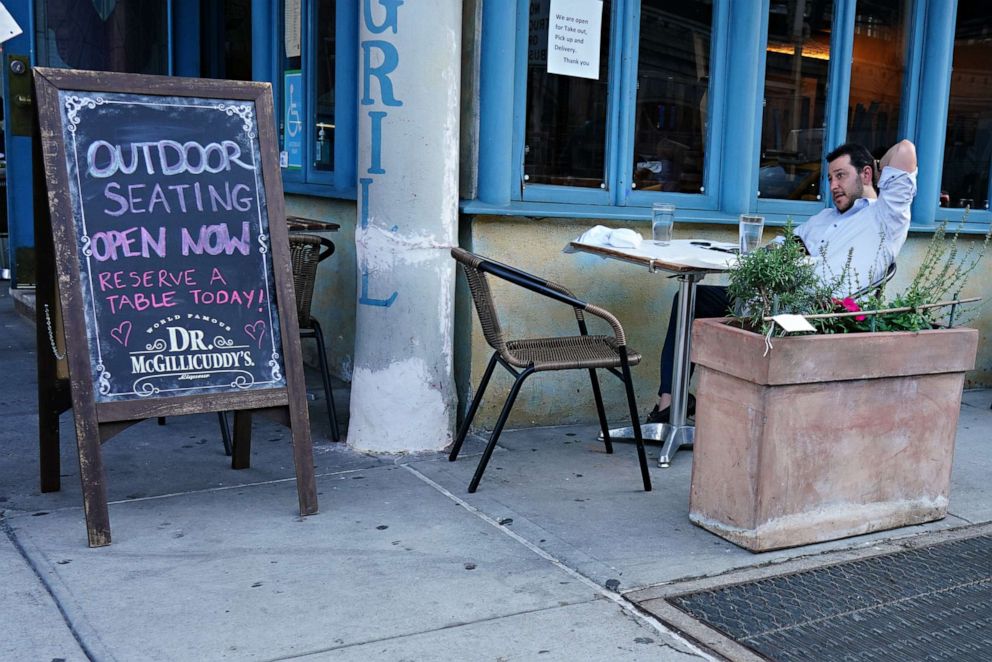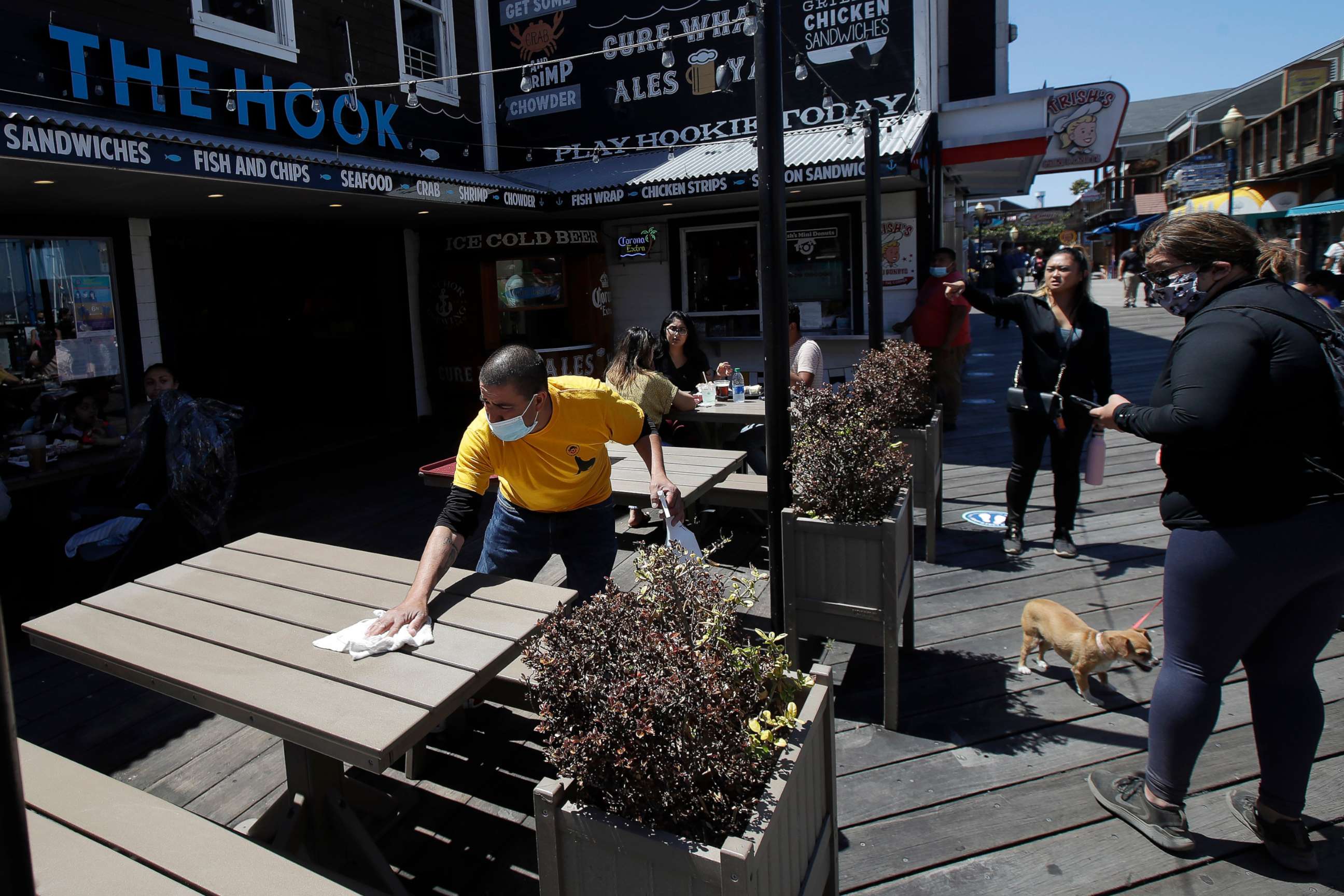Tips for dining out during the coronavirus pandemic
With the virus still spreading, many remain cautious about eating out.
With stay-at-home restrictions gradually being lifted across the country, many Americans are tempted to toss the takeout or home cooking in favor of returning to restaurant dining.
But with the virus still spreading, many remain cautious about the idea of eating out.
The good news is that there are still ways to keep yourself as safe as possible while enjoying a meal in a restaurant.
That's according to the Centers for Disease Control and Prevention, which has released tips on how to stay safer while dining out.
How should I prepare before going to a restaurant?
Before choosing to dine at a particular restaurant, you should do your homework. That means checking with local public health officials to see if dining out is allowed in your state or county. It also means figuring out if you live in a place where infections are currently surging or are relatively stable.
When you do decide it's safe to eat out, try to ensure the restaurant you chose is taking the appropriate precautions. Larry Lynch, the senior vice president of science and industry for the National Restaurant Association, recommended looking at the restaurant's website and "make sure you're comfortable with the protocols."
In addition to asking about key measures like masking among staff, sanitation, and distancing, you can also prepare by wearing your own face covering. Wearing a mask, "prevents droplets from spreading," said Dr. Graham Snyder, an infectious disease doctor and medical director of infection prevention and hospital epidemiology at the University of Pittsburgh Medical Center,
Wearing a mask might protect you from other diners who cough or sneeze near you, but it might also protect other people from you should be an asymptomatic carrier of the virus. For this reason, Snyder recommends you wear your mask as much as possible in the restaurant and ask the restaurant ahead of time if their employees will do the same.
Most importantly, Snyder said, "stay home if you're sick" and "ask [restaurants] how [they] encourage restaurant workers to not come to work sick."

What should I do when I get to the restaurant?
When possible, choose to eat outdoors.
"Mother nature's air handling is much better than indoor air handling and when out in fresh air, it's almost certain that transmission is less likely," Snyder said.
Also, maintain space between yourself and other restaurant guests, and avoid shouting, hugging or touching anyone else.
"If you do see someone you know in a restaurant you can call them later," said etiquette expert Diane Gottsman. "Don't feel compelled to cross the restaurant ... to say hello."
"Say hello, smile with your eyes, they understand and we understand," Gottsman said. "If someone does reach out to shake your hand then you just politely [decline] ... be assertive and proactive, but you can still be courteous and be polite."
And, as you walk to your table, Gottsman says, "keep your mask on ... It's a courtesy for yourself and others to mask up."
How will servers make my dining as safe as possible?
Robby Kukler, a partner at Fifth Group Restaurants in Atlanta, says that guests should expect restaurants to mandate "ongoing wellness checks with employees, masks worn by employees 100% of the time, sanitation stations throughout the restaurant for staff and guests."
Snyder adds some specific advice regarding these wellness checks that though temperature checks can help, "not everybody who has COVID-19 has a fever."
"Everybody should be doing self symptom screening and temperature screening can be used to augment that," Snyder said.

If you notice a restaurant staff member touching their face, not wearing a mask, or doing something else that makes you uncomfortable, it might be worthwhile to say something.
"I think that we have to be comfortable with a little bit of courteous discomfort," Gottsman said. "Certainly, you can ask for an adjustment. We don't want to be unkind, we don't want to be insulting, but at the same time we want to stay healthy."
What other precautions should I take during my meal?
Kukler emphasizes that the same principles apply, "masks, sanitation, distancing – those are the keys."
People obviously can't wear a mask while eating, but Snyder said it's important to make sure that all the touchable items on the table and at the restaurant are frequently cleaned.
"Practicing hand hygiene before you eat, after the bathroom, all these are important steps to keep yourself safe from the virus," Snyder said.
In addition to decreasing the potential for surface contamination, it is also smart to maintain distance while dining, especially during the time your mask is off.
In terms of contracting the virus from your food, Snyder says this is "very unlikely." Lynch agrees, noting that the Food and Drug Administration says that there is no foodborne transmission of this virus.

Overall, is it safe to eat at a restaurant?
Experts agree that, depending on the local disease prevalence, it can be safe to dine at a restaurant when all the above precautions are taken very seriously. They also agreed that the key to reducing the risk of dining out is teamwork.
"It takes good focus on both sides of the equation," Lynch said. "The restaurants are prepared, we've instructed them, and it's just making sure that the guests feel equally comfortable and they follow the same guidance."
But, not everyone may feel comfortable with all these rules. For those people, Gottsman said, "Nothing is going to be foolproof. ... If we are that concerned, what's the obvious answer? Stay home."
Stephanie E. Farber, M.D., is currently completing her final year of plastic surgery residency at the University of Pittsburgh Medical Center and is a medical contributor to the ABC News Medical Unit.




